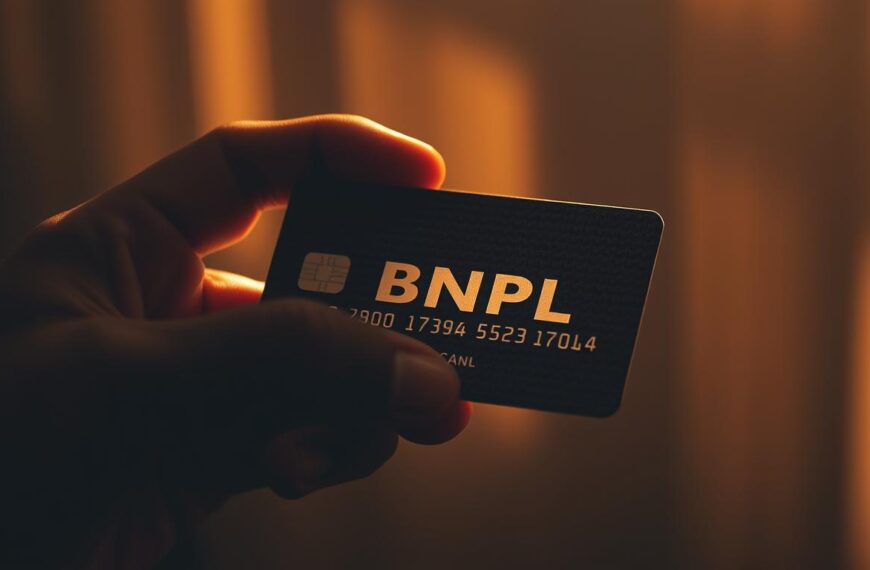Understanding how to navigate the impact of debt collection on your financial health is crucial in today’s economy. A collection account can significantly affect your credit report and score, potentially lowering it by a substantial margin1. However, with the right approach, you can mitigate this impact and work towards rebuilding your credit profile.
Debt collection agencies play a key role in recovering unpaid debts, but their actions can have lasting effects on your financial standing. Collection accounts typically remain on your credit report for up to seven years1, making it essential to address them promptly. The good news is that paying off these accounts can help improve your credit score over time.
Payment history is a critical factor in determining your credit score, accounting for 35% of your FICO® Score2 and 40% of your VantageScore 3.01. By addressing collection accounts and ensuring timely payments, you can positively influence your credit score. Additionally, some credit scoring models, such as FICO® Score 9 and VantageScore 4.0, may disregard paid collection accounts, especially if the original debt was less than $5001.
It’s important to note that while paying off collection accounts can help, the extent of the improvement varies across different credit scoring models. For instance, FICO® Score 9 may treat paid collections differently compared to older models1. Understanding these nuances is key to effectively managing your credit health.
In this guide, we will explore practical steps to improve your credit score after dealing with collections. We will cover various credit scoring models, the impact of payment history, and strategies to rebuild your financial health. By following these steps, you can take control of your credit report and work towards a stronger financial future.
Remember, improving your credit score is a journey that requires patience and consistent effort. With the right knowledge and strategies, you can overcome the challenges posed by collection accounts and achieve a healthier financial profile.
Understanding Collection Accounts and Their Impact on Credit
Collection accounts are a type of debt that has been transferred to a third-party agency because the original creditor was unable to obtain payment. These accounts are recorded on your credit report and can significantly affect your financial standing.
Defining Collection Accounts
A collection account arises when a creditor transfers an unpaid debt to a debt collector, either in-house or a third-party agency. This action is typically taken after several attempts to recover the debt have failed. Once an account is sent to collections, it is recorded on your credit report3.
Effect on Credit Reports and Scores
Collection accounts can remain on your credit report for up to seven years from the date of the first missed payment3. They are reported to one, two, or all three nationwide credit bureaus: Equifax, Experian, and TransUnion. The presence of a collection account can lower your credit score, as it indicates a history of late or missed payments.
Payment history is a critical factor in determining your credit score, accounting for 35% of your FICO® Score4. By addressing collection accounts and ensuring timely payments, you can positively influence your credit score. However, the extent of the improvement varies across different credit scoring models. For instance, FICO® Score 9 may treat paid collections differently compared to older models3.
how to improve credit score after collections
Understanding the intricacies of credit scoring models is essential for navigating the impact of debt collection on your financial health. Credit scoring models play a pivotal role in determining your creditworthiness, and recent updates to these models have introduced significant changes that could benefit you.
Exploring Credit Scoring Models
Modern credit scoring models, such as FICO® Score 9 and VantageScore 4.0, have evolved to treat paid collection accounts differently compared to older models5. These newer models may disregard paid collections, especially if the original debt was under $500, potentially offering a boost to your credit score5. This shift reflects a more consumer-friendly approach, rewarding individuals for resolving debts.
For instance, FICO® Score 9 and VantageScore 4.0 may ignore paid collections, while older models like FICO® Score 8 still consider them5. This distinction can significantly impact your credit score, making it crucial to understand which model is being used by lenders.
Recent Changes in Scoring Systems
Recent updates in credit scoring systems have been influenced by regulatory changes, such as the Federal Housing Finance Agency’s guidelines promoting the use of updated models5. These changes mean that paid collection accounts may have less impact on your credit score, offering a pathway to improvement.
For example, paying off collections can lead to score improvements, though the extent varies based on the model and your overall credit history5. Newer models like VantageScore 4.0 consider trends in your payment history, potentially rewarding responsible behavior.
These updates highlight the importance of staying informed about credit scoring changes and how they affect your financial standing. By understanding these shifts, you can make informed decisions to improve your credit profile.
Assessing Your Credit Report and Debt Collection History
Regularly reviewing your credit report is essential for maintaining good financial health, especially after dealing with debt collection. This process helps identify any collection entries and other adverse marks that may be affecting your credit score.
Reviewing Your Credit File
Accessing your credit report is straightforward. You can obtain a free report once a year from each of the three major credit bureaus—Equifax, Experian, and TransUnion—through AnnualCreditReport.com6. This service allows you to monitor your financial history and ensure accuracy.
When reviewing your report, verify all entries, especially those related to debt collection. Check for any inaccuracies, such as incorrect balances or dates, as these can negatively impact your credit score. If you find errors, file a dispute with the credit bureau to have them corrected.
Monitoring your credit history regularly is crucial. It helps protect against misreported information and ensures that outdated entries, such as those beyond the seven-year limit, are removed. Understanding the details of your credit report, including the impact of debt collection over time, is key to managing your financial health effectively.
| Aspect of Credit Report | Importance | Action |
|---|---|---|
| Collection Entries | Indicates past debts sent to collection | Verify accuracy and resolve disputes |
| Payment History | Reflects consistency in payments | Ensure timely payments for positive impact |
| Debt Details | Shows amounts and creditor information | Check for inaccuracies and outdated entries |
By regularly assessing your credit report and addressing any issues related to debt collection, you can take proactive steps towards a healthier financial profile.
Practical Steps to Manage and Pay Off Debt Collections
Taking control of debt collections is a critical step towards financial recovery. Understanding your rights and effectively communicating with debt collectors can make a significant difference in resolving these issues.
Verifying the Debt and Your Rights
Before addressing any debt collection, it’s essential to verify the debt’s legitimacy. Request a written validation from the collector, ensuring the debt is yours and within the statute of limitations. In the UK, statutes of limitations vary, but debts over six years old may not be enforceable7.
Under the Fair Debt Collection Practices Act (FDCPA), debt collectors cannot harass or mislead you. They must provide accurate information about the debt, including the amount and creditor. If a debt is sold to a collection agency, ensure they have the legal right to pursue it.
| Action | Steps | Importance |
|---|---|---|
| Request Debt Validation | Ask for written proof of the debt | Ensures the debt is legitimate and yours |
| Check Statute of Limitations | Verify the debt’s age | Debts beyond the limit may not be enforceable |
| Review Collector’s Rights | Familiarize yourself with FDCPA protections | Protects against unfair practices |
Negotiating Payment Arrangements
Once the debt is verified, negotiate a realistic payment plan. Assess your income and expenses to determine affordable monthly payments. Consider a lump-sum settlement if possible, which may reduce the total amount owed.
Always request a written agreement outlining the terms. This document serves as proof of your arrangement and ensures both parties are bound by the agreed terms. Keep detailed records of all communications and payments for your records.
| Step | Action | Details |
|---|---|---|
| 1 | Assess Finances | Evaluate income and essential expenses |
| 2 | Propose Payment Plan | Offer monthly payments based on ability |
| 3 | Request Written Confirmation | Document all agreed terms |
For more guidance on negotiating with debt collectors, visit Experian’s guide on effectively managing debt collections.
Building a Strong Payment History and Financial Routine
Establishing a consistent payment history is the cornerstone of a healthy credit profile. It demonstrates responsibility and reliability, which are key factors in determining your creditworthiness.
Implementing Consistent Bill Payments
A strong payment history is the foundation of an improved credit score. Payment history accounts for approximately 35% of your FICO® Score, which is utilised by 90% of top lenders8. By setting up consistent, on-time bill payments, you can significantly improve your credit score over time.
Timely payments can offset the negative marks caused by past collection entries. Automating bill payments using tools like autopay and calendar reminders can reduce the risk of late payments, thereby improving your credit score8.
| Payment Strategy | Benefit |
|---|---|
| Autopay Setup | Reduces risk of late payments |
| Calendar Reminders | Ensures timely payments |
| Consistent Payments | Improves credit score |
Regular payments also help maintain a low credit utilisation ratio, which is crucial for a healthy credit score. Credit utilisation should ideally be less than 30% of your credit limit9.
By creating a robust financial routine, you can ensure consistent payments and improve your credit score. This, in turn, can lead to better loan terms and lower interest rates over time.
Optimising Credit Card Usage and Credit Utilisation
Optimising credit card usage is a key strategy for maintaining a healthy financial profile. By managing your credit cards effectively, you can positively influence your credit score and overall financial health.
Credit utilisation ratio is a critical factor in credit scoring, accounting for 20-30% of your score depending on the model10. It is calculated by dividing the amount of revolving credit in use by the total available credit. Maintaining a low credit utilisation ratio demonstrates responsible financial behaviour and can enhance your credit score.
Avoiding excessive credit card debt is essential. Practical steps include setting a budget, tracking expenses, and avoiding impulse purchases. Consider using budgeting methods like the 50/30/20 rule to allocate your income effectively and prevent high utilisation. Keeping your credit utilisation below 30% is recommended, as higher rates can negatively impact your score10.
Proactive credit management can lead to tangible improvements in your financial standing. By maintaining low balances and making timely payments, you can build a positive credit history and improve your score over time. Remember, effective credit card management is a cornerstone of long-term financial health.

Leveraging Credit Scoring Models and Industry Updates
Recent advancements in credit scoring models have introduced significant changes that can benefit individuals working to rebuild their credit profiles. These updates reflect a more nuanced approach to assessing creditworthiness, offering opportunities for improvement.
Understanding FICO and VantageScore Implications
FICO® and VantageScore models differ in how they treat paid collections. FICO® Score 9 may disregard paid collections under $500, while VantageScore 4.0 considers trended data, offering a more dynamic view of payment history11. These models reward consumers for resolving debts, potentially enhancing their credit scores.
Adapting to New Reporting Trends
The industry is moving towards models that use trended data, providing a more comprehensive view of credit behavior. This shift, influenced by regulatory changes like the FHFA’s announcement on conforming loans, means paid collections may have less impact on scores11.
| Credit Scoring Model | Approach to Paid Collections | Key Benefit |
|---|---|---|
| FICO® Score 9 | May ignore paid collections under $500 | Reduced impact of small debts |
| VantageScore 4.0 | Considers trended payment data | More accurate assessment of behavior |
Staying informed about these updates allows consumers to adapt their credit management strategies, potentially leading to a stronger financial profile. By understanding and leveraging these changes, individuals can take proactive steps towards credit improvement.
Conclusion
In conclusion, managing the impact of debt collection on your financial health requires a strategic approach. While paying off collections may not immediately boost your credit score with every model, it is a vital step towards financial recovery. Understanding your credit report, staying updated on credit scoring models, and maintaining consistent payment habits are essential for long-term improvement.
Recent updates to credit scoring models, such as FICO® Score 9 and VantageScore 4.0, offer more consumer-friendly approaches, potentially disregarding paid collections under certain conditions12. Staying informed about these changes can help you make informed decisions to enhance your credit profile.
Rebuilding credit after collections is a gradual process that demands patience and responsible financial management. Regularly review your credit report to ensure accuracy and address any issues promptly. Consider the practical steps outlined in this guide to take control of your financial health. For more insights on how subscriptions can impact your credit score, visit this resource.
Remember, improving your financial standing is a journey that requires diligence and informed choices. By following these strategies, you can work towards a healthier financial future.
FAQ
What is a collection account and how does it appear on a credit report?
A collection account occurs when a creditor transfers overdue debt to a third-party debt collector. This account is listed on your credit report under the ‘collections’ section and includes details such as the amount owed and the agency handling it.
Can paying a collection account remove it from my credit report?
Paying a collection account does not automatically remove it from your credit report. However, it will be marked as ‘paid’ or ‘settled,’ which may positively impact your credit score over time.
How long do collection accounts stay on a credit report?
In the UK, collection accounts typically remain on your credit report for six years from the date of the original default. After this period, the account is usually removed automatically.
Does medical debt affect credit scores differently than other debts?
Yes, medical debt is treated differently. Under the FICO and VantageScore models, medical collections have a smaller impact on credit scores compared to other types of debt, as they are often considered less indicative of financial irresponsibility.
What is the best way to negotiate with a debt collector?
The best approach is to communicate in writing, verify the debt, and request a payment plan if necessary. Always keep records of your interactions and ensure any agreements are documented.
How does credit utilisation ratio impact my credit score?
Your credit utilisation ratio, which is the amount of credit used compared to your credit limit, significantly affects your score. Keeping this ratio below 30% is generally recommended to maintain a healthy credit profile.
Are there any recent changes in credit scoring models I should be aware of?
Yes, both FICO and VantageScore have updated their models to better reflect modern borrowing habits. These updates may place more emphasis on trends in payment history and credit utilisation.
What steps can I take to dispute errors on my credit report?
If you find inaccuracies, contact the credit bureau in writing, providing evidence to support your claim. They are required to investigate and respond within a specified timeframe.
Source Links
- https://www.capitalone.com/learn-grow/money-management/does-paying-off-collections-improve-credit-score/
- https://www.experian.com/blogs/ask-experian/credit-education/improving-credit/improve-credit-score/
- https://www.equifax.com/personal/education/credit/report/articles/-/learn/collection-accounts/
- https://www.businessinsider.com/personal-finance/credit-score/how-to-remove-collections-from-credit-report
- https://www.myfico.com/credit-education/faq/negative-reasons/collections-affect-credit
- https://www.britannica.com/money/debt-collection-on-credit-report
- https://www.financial-ombudsman.org.uk/businesses/complaints-deal/consumer-credit/debt-collection
- https://www.experian.com/blogs/ask-experian/how-to-improve-payment-history/
- https://www.nerdwallet.com/article/finance/raise-credit-score-fast
- https://www.experian.com/blogs/ask-experian/credit-education/score-basics/credit-utilization-rate/
- https://www.mckinsey.com/capabilities/risk-and-resilience/our-insights/designing-next-generation-credit-decisioning-models
- https://www.creditninja.com/blog/how-much-do-collections-affect-credit-scores/

















